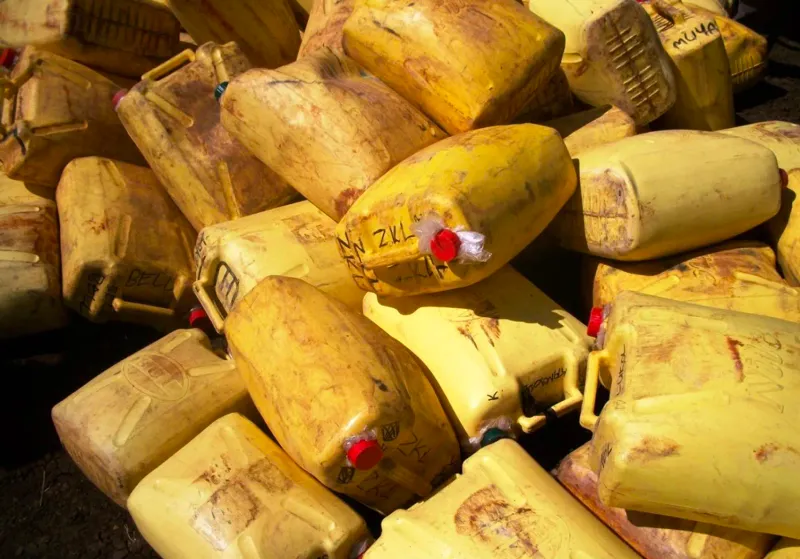
Security authorities in Moroto District have issued a stern warning to village chairpersons, threatening arrest if they fail to suppress the sale and distribution of illicit waragi in their areas.
According to the district security committee, the Village Chairpersons (LC1s) are being held responsible for allowing the illegal trade to flourish despite multiple efforts aimed at stopping it. The illicit gin, mainly transported from Jinja, continues to infiltrate the region despite the presence of roadblocks and checkpoints along major routes leading to Karamoja.
Acting Resident District Commissioner Justine Samuel Tuko expressed disappointment in the LC1s, saying they have neglected their duty to cooperate with security forces. “Those who fail to comply will face consequences,” he warned.
Tuko attributed several unexplained deaths in the district to excessive consumption of waragi. He dismissed claims that the deaths were caused by hunger, explaining that many individuals “take the liquor on an empty stomach and end up dying of alcohol.”
He further noted that some warriors consume waragi to gain false courage before going on raids, adding that “the influence of alcohol makes them fearless during missions.” Tuko also lamented that some families were selling their harvests in exchange for waragi, yet local leaders have not taken steps to stop the practice.
To strengthen awareness, Tuko offered free government airtime on local radio stations to village chairpersons so they could educate the public on the dangers of consuming crude gin. He also cautioned politicians against “using alcohol as an incentive during campaigns,” saying such actions undermine ongoing efforts to eradicate illicit liquor.
Deputy Anti-Stock Theft Unit (ASTU) Commandant Faustine Oyese praised the security forces for tightening control measures, saying these have helped reduce the flow of illicit gin into the district. “If we had relaxed our operations, the waragi business would be booming in town,” he noted. Oyese emphasized that the crackdown was part of broader efforts to tackle the social and health problems arising from excessive drinking.
He linked crude waragi consumption to rampant criminal activities, including cattle theft, road ambushes, and attacks on security installations. Oyese observed that “warriors often confront the forces fearlessly during operations because they are influenced by alcohol.” He added that new operational strategies have been developed “to contain the vice before it escalates.”
Oyese urged both the local leaders and the community to participate actively in the fight against illicit alcohol. “This responsibility should not be left to the police alone,” he emphasized.
However, several LC1 chairpersons have distanced themselves from blame, arguing that they should not be held accountable for the ongoing trade. They nonetheless pledged to collaborate with the security forces, urging them to “tighten control over the transportation routes.”
Moses Lomilo, the LC1 chairperson of Katanga Village, revealed that he had taken part in operations against waragi but sometimes their efforts were “frustrated by the same security personnel.” He questioned why the illegal gin was still able to pass through checkpoints. Lomilo called for teamwork, stressing that “waragi dealers move at night when security personnel are asleep.” He added that local leaders are willing to cooperate “if the police and army do not collude with the dealers.”
On Thursday, authorities confiscated over 300 jerrycans of illicit gin valued at UGX 66.6 million after securing a court order, with plans underway to destroy more than 400 additional jerrycans.
Waragi consumption has long been linked to rising cases of murder by shooting, rape, defilement, and cattle theft, where arrested warriors are often found carrying bottles of the crude liquor in their pockets.













Chrispus Mutaahi
Leave a Comment
Your email address will not be published.